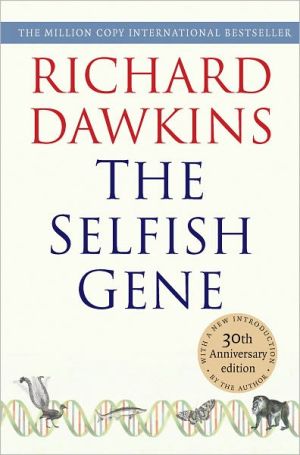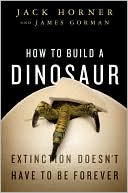Climbing Mount Improbable
A brilliant book celebrating improbability as the engine that drives life, by the acclaimed author of The Selfish Gene and The Blind Watchmaker.\ The human eye is so complex and works so precisely that surely, one might believe, its current shape and function must be the product of design. How could such an intricate object have come about by chance? Tackling this subject—in writing that the New York Times called "a masterpiece"—Richard Dawkins builds a carefully reasoned and lovingly...
Search in google:
A brilliant book celebrating improbability as the engine that drives life, by the acclaimed author of The Selfish Gene and The Blind Watchmaker. Publishers Weekly A prominent Darwinian examines the role of chance in evolution. (Sept.)
\ Publishers Weekly - Publisher's Weekly\ A prominent Darwinian examines the role of chance in evolution. (Sept.)\ \ \ \ \ Library JournalDawkins (The Blind Watchmaker, LJ 2/1/87 and River Out of Eden, LJ 3/15/95) holds the chair in "Public Understanding of Science" at Oxford University and, if this book is any measure, does so with distinction. This readable, elegantly written, fascinating assessment of why and how living things evolve and how-improbable as it may seem-seemingly random systems abet evolution is the sort of book Stephen Jay Gould would write if he were at Oxford. (Dawkins is Masterpiece Theatre to Gould's National Geographic.) This is not easy science; Dawkins discusses genetics, natural selection, and embryology for hundreds of species spanning millions of years, but he does so in a way that both delights and instructs. This is a book for Gould lovers, certainly, but life scientists of all sorts would appreciate it, as would teachers in the life sciences: it's an invigorating trip through the history of life led by one of Darwin's most articulate disciples.-Mark L. Shelton, Univ. of Massachusetts Medical Ctr., Worcester\ \ \ BooknewsIt's a treat when a scientist is able to convey the significance of a subject while at the same time commanding a reader's attention with intelligence, wit, and style. Dawkins (Chair, Public Understanding of Science, Oxford U.) manages to make the evolutionary design of animal and insect life both a source of serious biological inquiry and one of miraculous discovery. He portrays the silky worlds of spiders, how wings sprouted on previously flightless animals, the evolution of the human eye (no less than 40 leaps), and details how DNA paves the way for change across the whole spectrum of flying, swimming, and walking creatures. These discussions and others are well illustrated by line drawings and photographs. Annotation c. Book News, Inc., Portland, OR (booknews.com)\ \ \ \ \ Kirkus ReviewsDawkins (River Out of Eden, 1995, etc.), who now holds a Chair of Public Understanding of Science at Oxford, is at pains in this new work to refute creationists, who have long championed the argument that organs like the human eye could never have arisen "by chance" and that therefore a "Designer" must be at work.\ The point made early and oft repeated here is that creationists have got it all wrong: Mutations happen by chance (and are usually bad or at most neutral). But natural selection is not random: If the mutation confers an advantage, its possessor has the potential of leaving more offspring, allowing the mutation to spread. The book's title refers to Dawkins's metaphor for evolution: The process is, he suggests, somewhat like the act of climbing a mountain. One doesn't proceed by launching an immediate assault in a straight line from the base to the peak, but by necessarily working through a series of smaller hills first, attaining the summit gradually, in a seemingly roundabout way. Dawkins uses the evolution of eyes, of spider webs, and of wings, among other features, to press his argument, providing wonderfully rich examples from extinct and contemporary species. There are, however, some assumptions that may be questioned by other equally ardent Darwinists: For example, is evolution necessarily "good"? Dawkins seems to think so, and, of course, from a selfish point of view it is, since it produced us. But, as Stephen Jay Gould has recently pointed out, the most successful creatures on earth are bacteria and insects, species that have been around for eons and probably will outlast the rest of us complex critters. A second debatable assumption is that evolution necessarily proceeds toward complexity, when much evidence seems to suggest otherwise.\ Wonderful metaphorical trees examined in minute detail (including a tour de force on actual fig trees and their pollinating wasps), but Dawkins's evolutionary forest may be just a bit overpopulated with complex and improvable species.\ \ \







